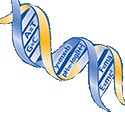NSF Grant Paves the Way for Future Teachers
An $887,433 National Science Foundation grant from the Robert Noyce Scholarships Program will fund a program that involves more than 50 classrooms in six middle and five high schools, supporting one to15 district mentor teachers per year and approximately 2,000 students in the rapidly growing, low-performing Moreno Valley Unified School District. Surrounding school districts are also likely to benefit from the award.
The grant was given to Pamela Clute, executive director of the Academy of Learning through Partnerships for Higher Achievement (ALPHA); Brad Hyman, professor of biology, and faculty director, Science Mathematics Initiative within the College of Natural and Agricultural Sciences; and Maria Simani, director of the UCR P-20 Regional Alliance and future UCR Noyce program director.
“This grant allows us to capitalize on the university’s internal partnership between the College of Natural and Agricultural Sciences, the Graduate School of Education and the ALPHA Center for Academic Partnerships,” said Clute. “Together we have a mission to find the best students and mentor them through undergraduate and graduate school and into teaching jobs in Moreno Valley.”
Progress will be observed to determine the impact of the program on teacher performance, commitment to serving the district, impact as a student role model, longevity to the profession and ability to assume leadership. The end goal is to establish a model that can be replicated to shape teachers who will best prepare students for the 21st century.
“The training infrastructure and curriculum are already in place at UCR, but we hope to expand upon those elements to create a continuum of teacher preparation and development,” Hyman said. “The end result will be more than 40 new secondary mathematics and science teachers who are prepared and motivated educators within our partnership district.”
“The goal of the Noyce program is to increase the number of high-quality teachers in science, technology, engineering and mathematics (STEM) who are prepared and motivated to face the educational challenges of high-need schools,” Simani said. “Our Noyce scholars will have an important impact on the lives and careers of students and teachers in our partnering schools.”
The Robert Noyce Teacher Scholarship Program seeks to encourage talented science, technol- ogy, engineering and mathematics majors and professionals to become K-12 mathematics and science teachers. The program provides funds to institutions of higher education to support scholarships, stipends and academic programs for undergraduate science, technology, engineering and mathematics (STEM) majors and post-baccalaureate students holding STEM degrees who commit to teaching in high-need K-12 school districts.
View the PDF (the article is on page 4)
